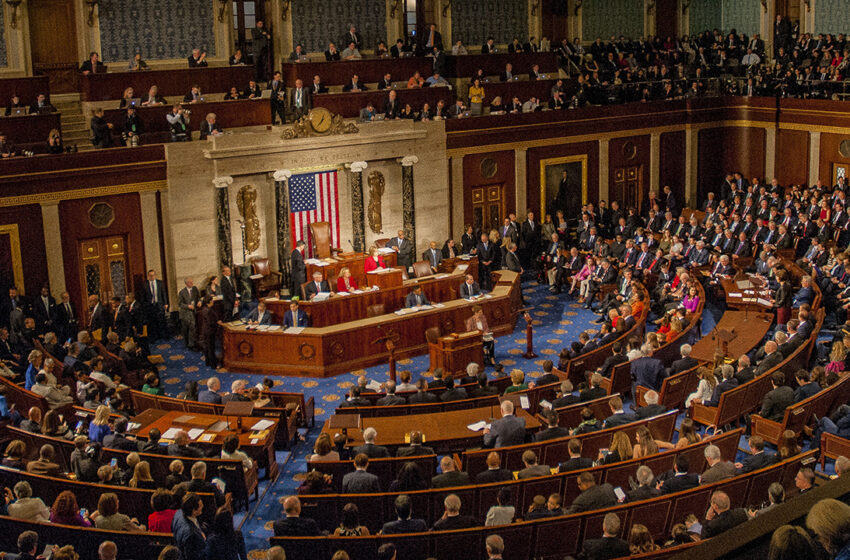US Congress potential sanction against South Africa…what you should know

View, from the balcony, of congressmen and congresswomen on the house floor as the 115th Congress is called into session on its opening day, Washington DC, January 3, 2017. (Photo by Mark Reinstein/Corbis via Getty Images)
The U.S. House Foreign Affairs Committee took a major step on July 23, 2025, approving the U.S.–South Africa Bilateral Relations Review Act by a vote of 34–16. Spearheaded by Republican Rep. Ronny Jackson, the bill accuses South Africa of aligning with “communists and terrorists” and could usher in sanction on top officials marking a potential turning point in U.S.–South Africa diplomatic ties.
What Does the Sanction Bill Propose?
Dubbed the Bilateral Relations Review Act, the bill aims to:
- Launch a full-scale review of diplomatic relations with South Africa
- Identify South African officials eligible for sanction, especially those linked to corruption or human rights abuses
- Potentially impose visas bans or asset freezes
The legislation specifically cites concerns over South Africa’s partnerships with China, Russia, and alleged support for Hamas, alongside its 2023 genocide case at the International Court of Justice.
Why US Lawmakers Are Taking This Step
Rep. Jackson has publicly denounced South Africa’s government for “siding with communists and terrorists.” The impetus behind the bill stems from perceived shifts in Pretoria’s foreign policy, including deepening ties with China and Russia and vocal support for Palestine, that lawmakers warn may undermine shared global interests.
Political Fallout in South Africa
While the bill progresses in Washington, South African officials have remained largely silent. Analysts from Reuters suggest the move is already straining relations amid broader tensions, including looming 30% tariffs and diplomatic friction following Pretoria’s visa denial for a trade envoy.
What’s Next? Will Sanction Become Law?
For the Act to take effect, it still needs approval by the full House and the Senate, followed by the president’s signature. Critics caution that sanctioning a strategic partner like South Africa could damage bilateral relations and trade, while supporters say the bill is essential for accountability and alignment on global values.
READ ALSO
Spotting synovial sarcoma: July is Sarcoma Awareness Month
South Africa Passport climbs global rankings: What it means for travelers
Impact of Sanction on US–South Africa Relations
Should sanctions be imposed, expect high-level disruptions in:
- Defense cooperation and security collaboration
- Trade and investment, potentially hitting critical sectors
- Diplomatic engagement, heightening tensions at regional and global forums
South African analysts argue such a move could alienate a key partner during a time when Pretoria seeks balanced multilateral relations.
What Sanction Means for Global Diplomacy
The South Africa sanction proposal is a notable shift: a major Western power reconsidering ties with a fellow democracy over foreign policy misalignment. Observers say it sets a precedent when democratic alliances clash, intensifying debates over sovereignty, global alignment, and the rules governing diplomatic reciprocity.
A Test for Bilateral Relations
The House committee’s move to advance the sanction bill is more than symbolic, it could reshape U.S.–South Africa relations. As it heads to the full Congress, all eyes will be on how lawmakers weigh national interests, global partnerships, and diplomatic consequences. Whether the bill becomes law remains uncertain, but its passage through committee marks a pivotal moment in transatlantic diplomacy.

